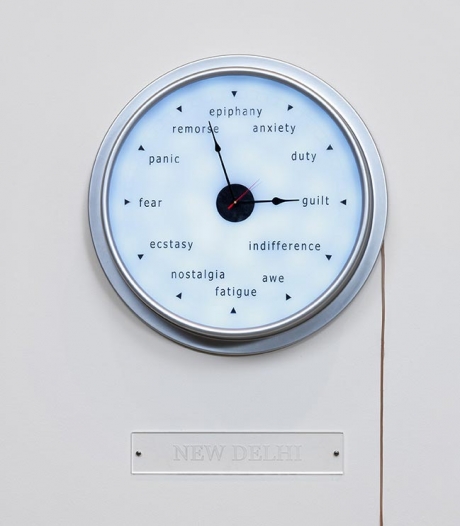What is common to all of them the assumption that it’s ok to ask someone to squeeze something more in. We ignore the illnesses, the anxiety, the overwork and ask for ‘just a little bit more.’ I have the feeling that this is something that many people will be familiar with. It’s something that happens to us and something many of us do to other people.
Perhaps one reason we do this is that we get so caught up in our own deadlines and worries that we can’t accept that what we had planned just isn’t going to happen. The report you really hoped to have in the newsletter won’t be getting written. The attendees at your event won’t be synchronised with each other. Once, when a speaker had to cancel their attendance at a meeting I’d organised, I didn’t get back to them for a week because I was too busy worrying about what I was going to do without them. In my own work I’ve come to think about time as a form of relationality. Our stories about time tell us what is it to be with others, or to not be with them. They also tell us what kinds of forms this ‘withness’ can take. This means that time can also be seen as a form of ethical encounter. If that’s so, what are we doing when we ignore other people’s claims that they don’t have the time? It seems that in order to treat the other ethically, you have to come to terms with your disappointment, let go of the anticipated future you had been working with, and then still have the generosity to be able to say to the person who has somehow let you down “Of course, no problems, hope things get better for you soon”. I had a lovely lesson in this when I witnessed a colleague deal with a keynote having to drop out of an event only a couple of weeks before the start date. The speaker had obviously wrestled with the guilt of doing this and was extremely apologetic. Almost immediately the reply came back that they would be missed, but it is far more important for them to take care of themselves, everyone would manage, and there was no need to feel bad. Even though it wasn’t directed to me, the kindness and compassion of it brought me to tears. I had this in mind when I was sitting in that network coordination meeting, listening to stressed people being asked to take on even more. I realised that sending them the email passwords ‘just in case’ would still add another thing to the pile of things they felt like they should be doing. So I objected and suggested that they should in fact be deliberately not sent the password so they wouldn’t have it at the backs of their minds. It was only a tiny little gesture, but it’s an event that stays with me because it reminds me that there are these kinds of ethical decisions to be made, and I hope I can learn to be more like my colleague, who focused on care rather than guilt. Proposals due 18th January 2016. Unexpected Encounters with Deep Time: Violence Read more over at the Edinburgh Environmental Humanities site.
|
Archives
November 2022
Categories
All
|

 RSS Feed
RSS Feed
